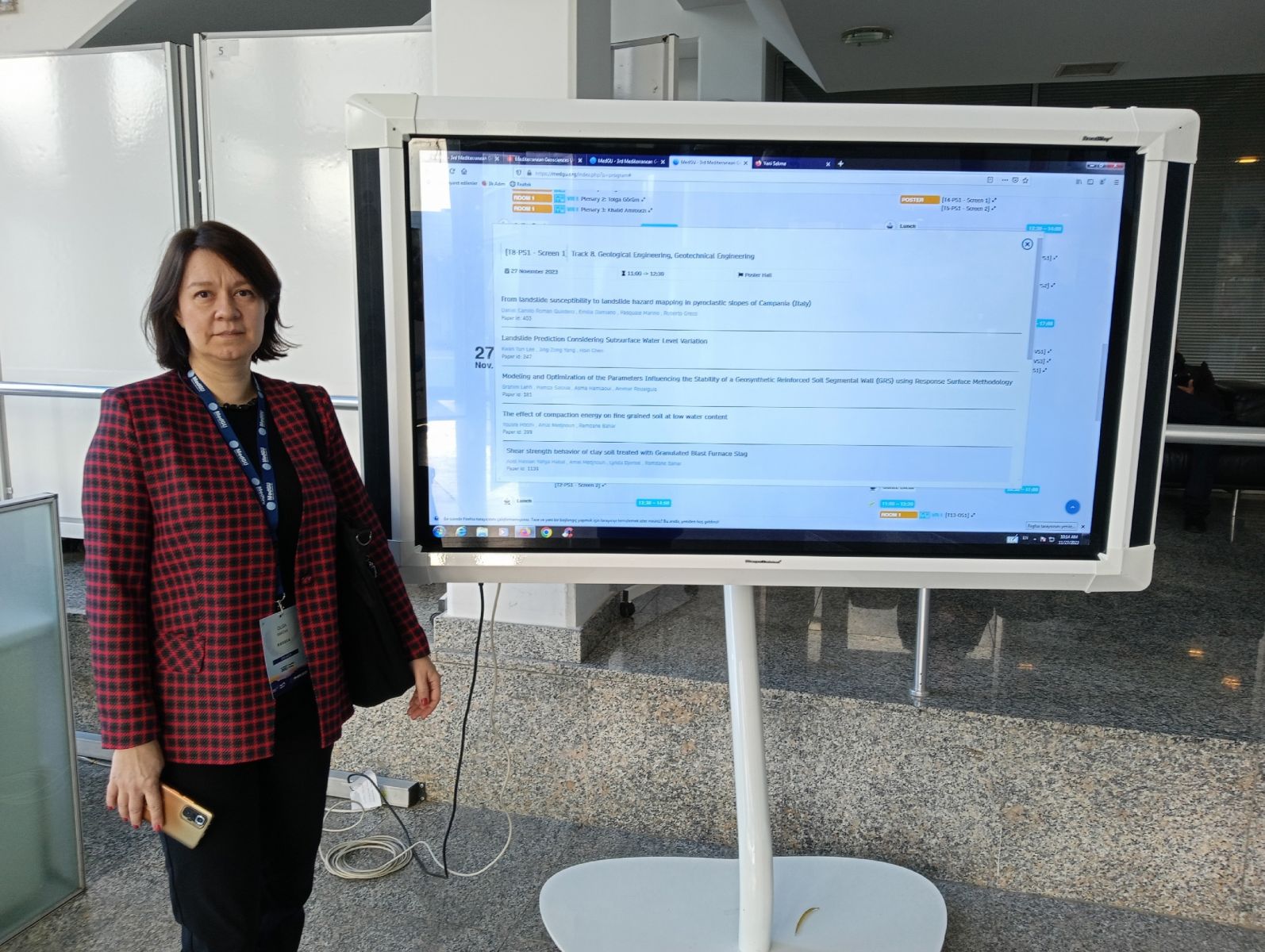Research fellows from the SUSU Laboratory for Studying Environmental Problems in Post-industrial Agglomerations Tatiana Krupnova and Olga Rakova have presented their reports at the major forum of the 3rd Mediterranean Geosciences Union (MedGU–2023).
The conference is being held at Istanbul Technical University (ITU), Istanbul, and has gathered 1200 participants from 89 countries. Among the scientists are ecologists, meteorologists, geologists, and even palaeontologists.

Olga Rakova has shared on a fundamentally new approach to evaluating the environmental condition in an industrial city: judging by the condition of snow cover, roughly speaking – by its “whiteness”.
“To assess the degree of snow pollution, we used the reflective properties of snow, including those measured in infrared radiation,” explains Olga Rakova. “For the analysis, we collected images taken on a cloudless day, in the absence of snowfalls over the period of 5-7 days, during snow melting.”
The researchers came up with this idea after they were engaged in remote sensing in 2003-2020, while studying the condition of the snow cover in the vicinity of Korkino coal mine.
For sampling, the researchers selected various locations and territories: industrial zones, backyards, territories adjacent to big shopping malls, hospitals, carparks, as well as developed highways. The research revealed that judging by the snow condition it is possible to make a reliable forecast regarding multiple factors contributing to the pollution of the atmosphere near the ground, and first of all, with dust.
Tatiana Krupnova has presented a technology of detecting and evaluating the sources of pollution of urban environment, using the isotope ratios of zinc, lead and copper. These ratios are just like “fingerprints”. The research showed that up to 60% of metalloidic pollution in the city of Chelyabinsk is caused by industrial enterprises, 20% – by transport, and 20% comes from other sources, for instance, construction works. This technology has practically not been used anywhere in Russia yet.

ПThis trip to Istanbul for the SUSU scientists Olga Rakova and Tatiana Krupnova has become possible thanks to the grant funding from the Russian Science Foundation (RSF).




